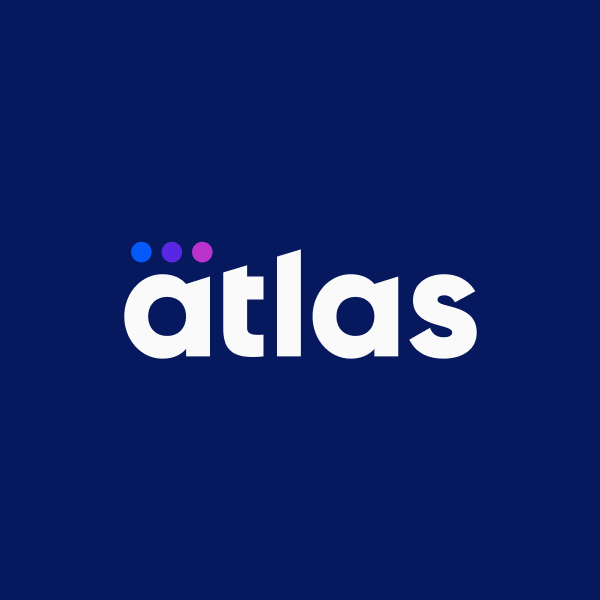Video Interview Questions to Ask
Video interview software doesn’t always allow hiring managers the same ability to read body language that an in-person interview does. As such, we have to be careful to choose the right interview questions that might give us that additional insight into who a candidate is, and what they can bring to the team.
These are the eight best video interview questions to ask to spot top talent:
- What can you tell me about yourself?
- Can you tell me about a mistake you’ve made at work, and what it taught you?
- Tell me about a time you were faced with multiple tasks in a limited timescale. How did you prioritize them?
- What drew you to our company/specific role?
- How would you deal with [common problem]?
- What do you think you’ll get from this role?
- How do you see yourself progressing within our organization?
- When delivering a piece of work, is it better to be perfect and late or good and on time?
We’re going to look at these video interview questions in detail, as well as key indicators to look for in the candidate’s answers. Take note that, although we’ve split them into two groups below, the insight gained from any of these questions are relevant whether the video interview is done in real-time, or in a one-way pre-recorded format.
Ask these questions and implement virtual interviewing tips for hiring managers and you'll be able to maximize the effectiveness of this part of your recruitment process:
Live Video Interviews
As the name suggests, live video interviews are conducted face-to-face, usually using video conferencing software such as Skype, Zoom or Google Meet. One of the key benefits of video interviews is the elimination of geographical limitations, but COVID safety measures made remote interviewing of this nature widespread even for local job seekers.
The pandemic also spread the use of free video interview software within businesses, as they realized they could open up this recruiting avenue with little to no cost. It does carry the advantage of being able to see the candidate and interact with them in real-time when compared to pre-recorded interviews. This allows you a little more freedom to prompt if you feel that a candidate is straying from their point.

Here are the go-to questions and answers you want to look out for live video interviews.
1. What can you tell me about yourself?
This is a tried and tested question that risks being overlooked when hiring remotely. Although some people are less worried about cultural fit when hiring candidates who aren’t physically present, the often disconnected nature of widespread teams actually means it’s just as important as it ever was.
What you’re looking for:
The responses you want to this question should be balanced, and not overly lengthy. It’s an opportunity for a candidate to tell you a little about who they are as a person, their interests, and a little about their working history. While they may be feeling some nervous tension, as interviews aren’t always the most relaxing setting, this gives them a chance to ease into answering. It is the one question that doesn’t require them to know anything other than their own likes, and history.
Additionally, it’s worth cross-referencing any roles they mention during this answer with those on their resume, as it can give you some insight into the roles they remember most fondly. If those duties have a significant crossover with the role they're interviewing for, there’s a good chance they’ll be happy in their work.
What could go wrong:
As we said before, this is a question that gives your candidate the opportunity to relax, and warm up for the more direct questions later on. There are however two ways in which this can backfire:
If your candidate starts explaining a long and storied history, it may be best to gently prompt them toward something more related to their skills and interests. You’re not there to hear their life story, just to get a sense of who they are, and how that might relate to their work.
Honesty is important in interviews, and this question gives you a great chance to get a feel for just how honest your candidate is going to be. Try to get a sense of how tense they seem answering this basic personal query. If their answers don’t cover much detail, or they seem like they’re cutting things short, they may be holding back and trying to give you the answer you want, rather than the answer you need.
2. Can you tell me about a mistake you’ve made at work, and what it taught you?
Although this question may seem close to the classic “What is your greatest weakness?”, it differs in a couple of important ways:
- It focuses their ‘weakness’ on their working practice, rather than making it about an inherent quality.
- It also asks them to demonstrate the knowledge they gained.

What you’re looking for:
We’ve all made mistakes at work, as much as we might not like to admit it, mistakes are part of the human experience. Ideally, the candidate should be able to recognize a situation they can use for this question, and it’s likely your answer is going to come in a classic S.T.A.R format (Situation, Task, Action, and Result).
The key to a good answer here is that the candidate can demonstrate growth by explaining what they learned— perhaps with further prompting. Also, prompt them to explain how the incident affected their working practice moving forward.
What could go wrong:
With this question, it’s important to remember that the example itself isn’t the most important thing. In fact, there are only two ‘incorrect’ answers to this question.
The first is if a candidate can’t give you an example. While it may come across as nerves or a mental blank, no business benefits from someone who can’t admit to their mistakes. Too often, this can lead to blaming others when things go wrong.
The second red flag response to this question depends on what they learned from the experience. Remember that the question was about a mistake they made, so their takeaway should relate to themselves. If they begin to paint the situation as a fault in someone else, or something outside of their control, it’s likely that they’re unable to see the part they played and didn’t grow as a result.
3. Tell me about a time you were faced with multiple tasks in a limited timescale. How did you prioritize them?
Due to the lack of physical presence and connection that a remote role can contain, it’s important for remote workers to be able to organize their time effectively. As such, a question that delves into their ability to prioritize and organize their time is an important addition to a question set for remote candidates.
What you’re looking for:
The answer to this question can give you insight into a candidate's abilities around decision-making, delegation, task switching, and their understanding of their own capabilities.
- Did they understand how long the tasks would take?
- Were they able to plan accordingly?
- Did they understand the skill sets of the people they delegated to?
- Did they admit when they needed to ask for help?
- How did they respond if the tasks couldn’t be completed in time?
The answers a candidate gives to this question could progress along any of the routes above. From there you should be able to understand how they viewed their place in the organization and how much they understood about the people they worked with.
What could go wrong:
A problematic response to this question is one in which they either expose their lack of ability to prioritize or work with others, or one in which they become the hero. If the answer becomes “I powered through, worked late, and got it all done” then this may not be the candidate for you.
While it may be tempting to see this as the ability to go “above and beyond”, what a “hero” response more likely signifies is that the candidate was unrealistic about their time or capability. As a result, they took on too much rather than to prioritize effectively, delegate well, or communicate with their manager to find a solution. As a hirer, you have to ask yourself whether this is someone who can give extra effort when needed, or if they’re simply going to burn themselves out by trying to do too much too often.

4. What drew you to our company/specific role?
A slight re-phrasing of the classic “Why do you want this job?”, this question acknowledges the flexibility that remote working has given some candidates. While it hasn’t solved unemployment issues, it does mean that candidates are no longer as geographically restricted as they once were, so they have a wider market when they’re searching for opportunities.
What you’re looking for:
This answer should show you that the candidate has done a little research on the company, understands the role that they’re applying for, and that they’re approaching the job from a realistic point of view on what it can offer them.
More importantly, however, it can let you know more about what motivates them and what they actively want to do. Combined with their answer to “Tell me about yourself” this can give you a fairly comprehensive understanding of who your candidate is, and how they’ll fit within the team and company should they be the successful hire.
What could go wrong:
As much as we might hate to admit it, “I’d like to pay my bills” is an entirely valid part of the reason people look for work. Whether they’re unemployed, or they’re looking to increase what they earn, remuneration is always going to be a factor, and we shouldn’t pretend that it isn’t.
When the candidate can’t offer much beyond that, however, they might not be a person who's going to be as engaged as someone who has a genuine interest or enthusiasm for the role, or the organization. If their response gives you the impression that they’re only in it for the paycheck, it may be worth thinking about how quickly they’ll move on when their dream job, or just a new opportunity they truly want, comes along.
One-way (Pre-recorded) Video Interviews
One-way video interviews happen asynchronously and are pre-recorded. As such there are two main things to consider:
- The first is that you’re not going to be able to effectively prompt a candidate if their answer is close, but missing some detail. You can counter this by clearly conveying what you’re looking for in their answer.
- The second is that, in a pre-recorded video interview, it’s going to be harder for them to respond in a natural manner. This is just human nature, because they can’t pick up on the normal social cues you might present during an interactive interview. Things like eye contact, body language, and tone of voice.
Something to remember about asynchronous interviews, however, is that they’re more likely to be used as a pre-screening step in your hiring process. A good one-way interview tip, therefore, is that one-way video interview questions don’t necessarily need to be as in-depth as they would be in a face-to-face interview.
1. How would you deal with [common problem]?
The question should be based on a core task that the candidate is going to encounter in the role, so it should be in line with the job description you’re advertising for. The interviewee’s answer should be able to give you an understanding of how they problem-solve, and they’ll engage with the role.
What you’re looking for:
The answer you’re looking for here should be a confident and direct explanation of how the candidate would take on the problem.
Answers should likely come in S.T.A.R format, giving an example of a time they’ve dealt with a similar problem. This can help you to gauge their understanding of the role they’re applying for, and how easily they’ll be able to integrate into what you do.
What could go wrong:
In some ways this could be a make-or-break question for a candidate, so be intentional with where it slots into your interview process. The flip side of showing their understanding and competence is demonstrating their lack of it. If a candidate gives you an answer that shows they don’t clearly understand the task, or the role itself, or that they have unrealistic expectations of how they can operate within it, it could quickly show you that they’re the wrong fit for the job.

2. What do you think you’ll get from this role?
This question should give you an understanding of the expectations that your candidate has, both for the role and for being part of your organization.
What you’re looking for:
It may not be the most straightforward question for a candidate to be asked, as often the focus is what they can bring to your company. Don’t expect their answer to sound as pre-prepared as others might.
Ideally, it will give you an idea of what they value from their work and their employers. Their response will also help you to understand if the organization’s company culture is going to be fulfilling for them.
What could go wrong:
The key to this is to ascertain what makes this role one the candidate would be excited to have. If their answer is thin or unenthusiastic, it should ring alarm bells. They may not be all that interested in the role, just keen on a pay boost, or may be viewing it as an interim solution.
Consider whether hiring a candidate who gives a low-energy answer to this question is someone you're going to keep long-term. You may end up replacing them as soon as something more appealing comes along— which is a good insight to have ahead of time even if you do decide to offer them the job.
3. How do you see yourself progressing within our organization?
While we’ve all heard “Where do you see yourself in x years?”, framing the question around the business itself is much more specific. It can allow you to see how much your candidate knows about your business, what their aspirations are, and how much value they place on progression. It also hints to them that you’re interested in retaining people and utilizing their skills as they grow.
What you’re looking for:
The ideal answer to this question would be delivered confidently, explaining a clear path they want to undertake.
Whether it’s one step up the chain or they have their whole career path mapped out, an answer that’s had some thought to it shows you that the candidate isn’t intending to rest on their laurels. A candidate focused on career growth is looking to add to their existing skills, possibly to the benefit of your organization as a whole.
What could go wrong:
Answers that indicate that they haven’t considered their career progression can tell you a few things about the candidate.
It could mean that they’re simply content to remain at their current level, or happy in their duties. However, it is up to you as the hirer to decide if a lack of aspiration is something that’s going to hurt your business in the long run. Does a lack of desire to progress mean that the candidate will stagnate in the role, and is innovation and drive something the role you’re recruiting for needs?
4. When delivering a piece of work, is it better to be perfect and late or good and on time?
While the accepted logic to this question is always “Good and on time because perfect is impossible”, I personally see this question as one that can be answered either way, for good or bad. But it can show you more about a candidate than you might think.
What you’re looking for:
If a candidate opts for “perfect and late”, they need to explain how they deal with that lateness. This shows their ability to communicate with their managers, and their ability to push themselves when needed. If they “choose good and on time”, their answer should demonstrate that they’re able to make clear decisions and understand the practicalities of their role. This answer also indicates that they won't obsess over unimportant details which may push a project over its delivery window.
What can go wrong:
If either answer is provided as an absolute, then you may need to consider that the candidate isn’t as flexible as they might need to be, depending on the role in question. No matter how well managed, some hurdles require more attention, and some practicalities mean some goals are unattainable within a set timeframe. If a candidate can’t apply objective thinking, then they may find their projects hard to deliver— perfect, or on time.

Final Thoughts
The video interview questions for recruiters above are designed to give you a range of insights into a candidate's skills, aspirations, values, personality, and work ethic. Striking a balance of insights into these different qualities allows you to consider your candidates holistically.
It’s important to understand that each of these qualities will inform how your new hire operates within your organization. This insight can be all the more important for remote workers who may have less contact time with their co-workers, and be slower to form a cultural fit as a result.
There’s still some debate over which is the best video software to use for recruiting, but whatever your preference, hiring teams should spend some time familiarising themselves with their organization's chosen software to ensure interviews run smoothly.
It’s important to remember that the introduction of technology to the process of hiring doesn’t change its ultimate aim: Hiring the right candidate for the role, and for the organization. I hope that the questions above can help you navigate the expanded labor pools that video interviewing can provide, and that you can find the right fit.

























